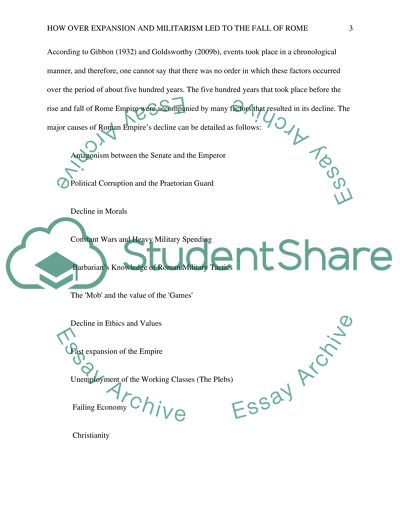Cite this document
(“How over expansion and militarism led to the fall of Rome Essay”, n.d.)
Retrieved from https://studentshare.org/history/1475739-how-over-expansion-and-militarism-led-to-the-fall
Retrieved from https://studentshare.org/history/1475739-how-over-expansion-and-militarism-led-to-the-fall
(How over Expansion and Militarism Led to the Fall of Rome Essay)
https://studentshare.org/history/1475739-how-over-expansion-and-militarism-led-to-the-fall.
https://studentshare.org/history/1475739-how-over-expansion-and-militarism-led-to-the-fall.
“How over Expansion and Militarism Led to the Fall of Rome Essay”, n.d. https://studentshare.org/history/1475739-how-over-expansion-and-militarism-led-to-the-fall.


